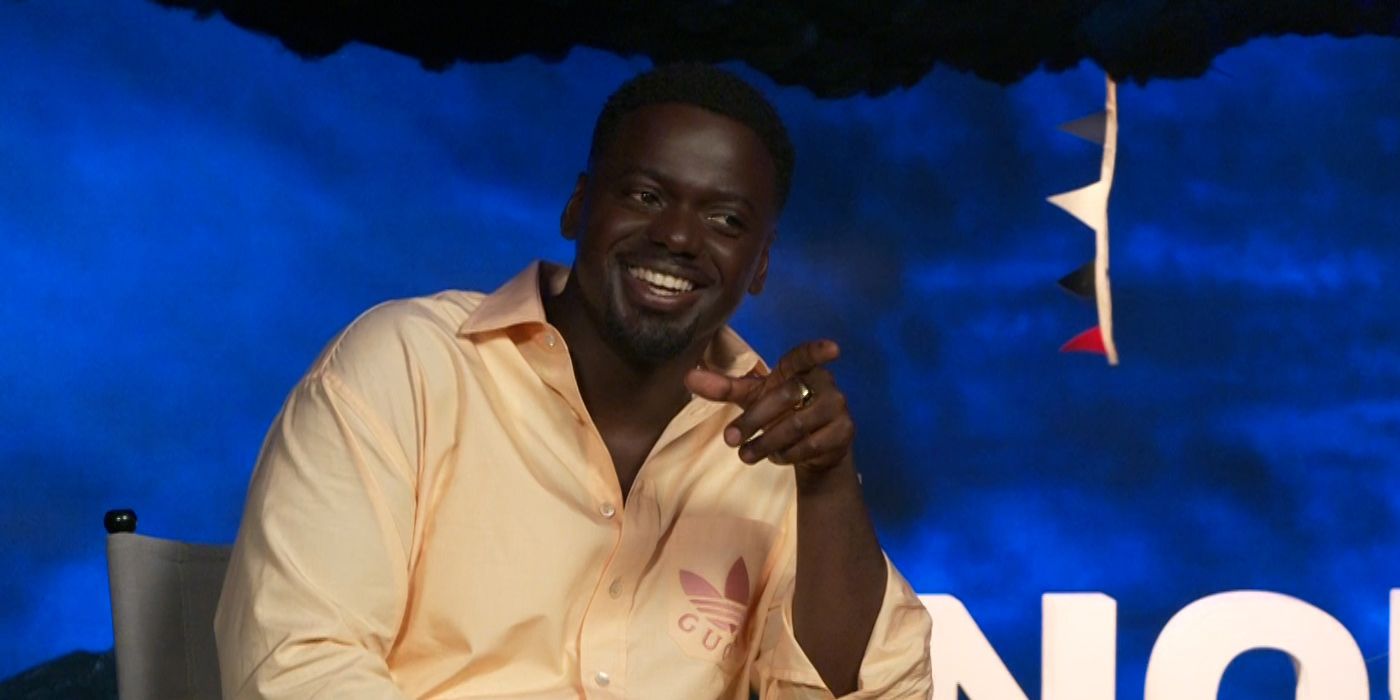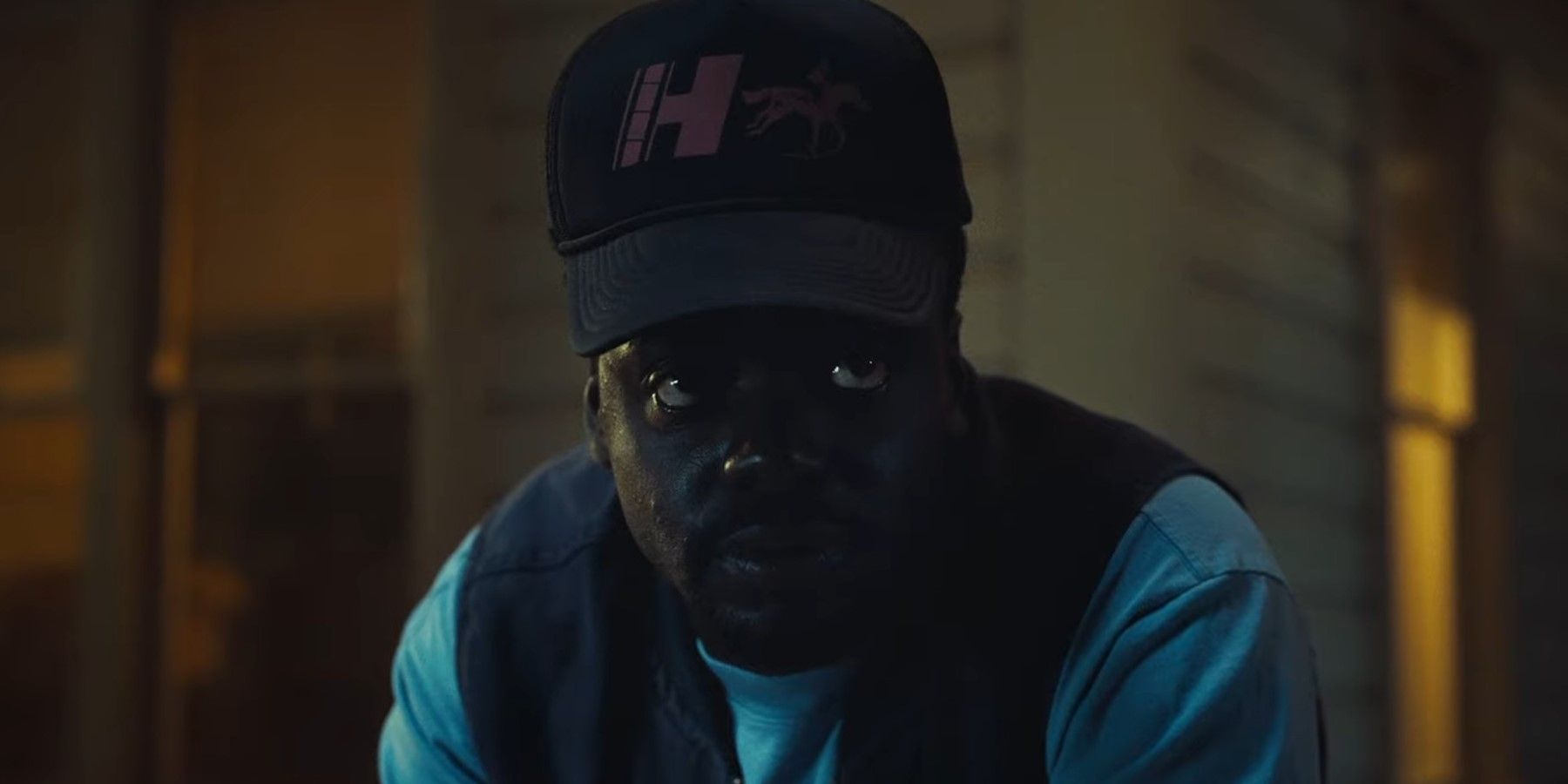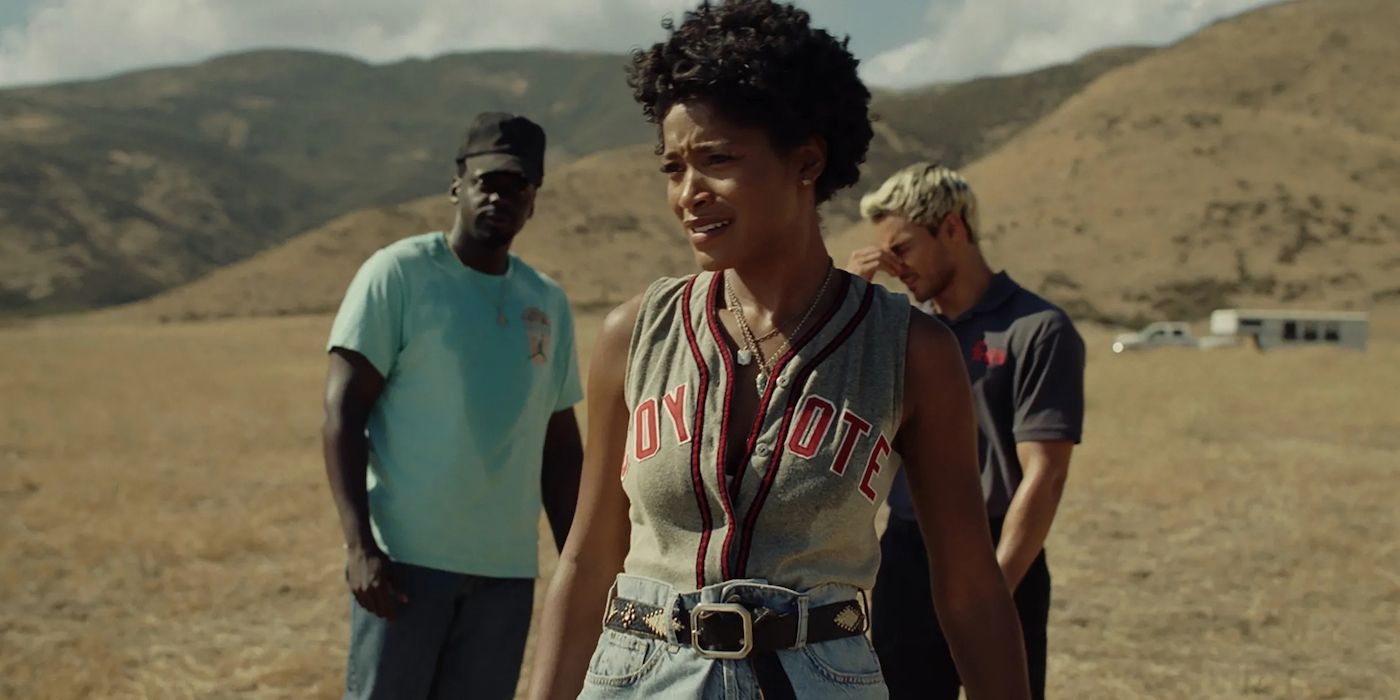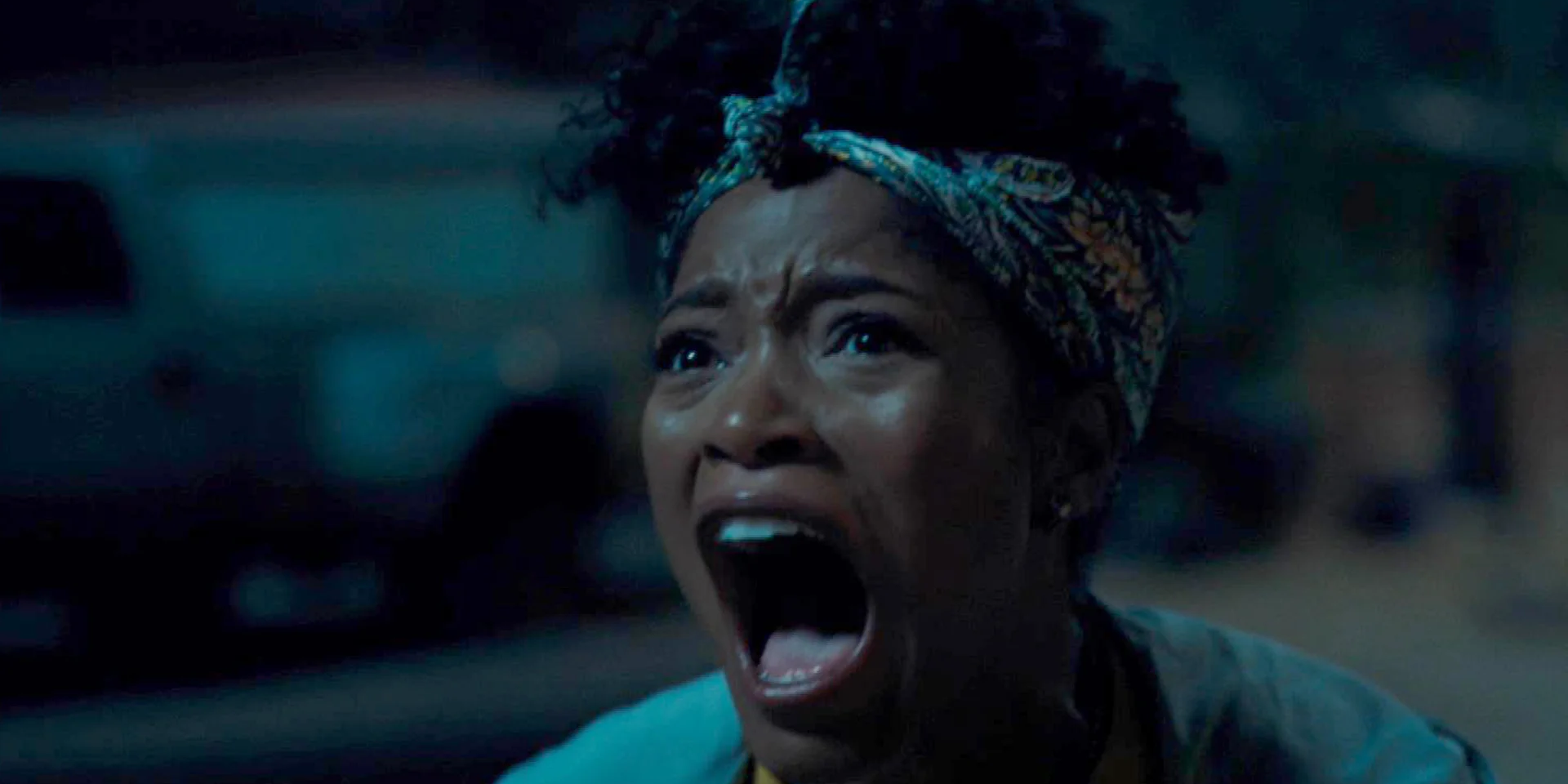With writer-director Jordan Peele’s Nope now playing in theaters, I recently had the chance to talk with Daniel Kaluuya about making the film. During the interview, he talked about the difference between the way Peele worked on Get Out and Nope, what it was like filming with IMAX cameras and cinematographer Hoyt Van Hoytema, the way he prepares for a big scene, deleted scenes, and what people might be surprised to learn about the making of Nope.
While I know a lot of you love to learn everything you can about a movie before you see it, I’d recommend watching Nope knowing as little as you can. But for those that need to know something… Nope is about a few residents in California who bear witness to an uncanny and chilling discovery. The film also stars Keke Palmer, Steven Yeun, Brandon Perea, Barbie Ferreira, and Keith David.
Finally, I strongly recommend seeing Nope in an IMAX theater. Peele shot the movie using IMAX cameras and the best way to experience the film is in an IMAX theater.
You can either watch what Kaluuya had to say in the player above or read the conversation below.
COLLIDER: First, I want to say congratulations on this movie.
DANIEL KALUUYA: Thank you.
And I sincerely cannot wait to see it again, next time in IMAX. I cannot wait. But I want to go backwards actually, if you don't mind. When you guys were making Get Out, the movie's made for like four something million dollars, it was not expected to do what it did. I don't think. When did you realize, people love this and this is going to be pretty big?
KALUUYA: I didn't know because I was in it. I couldn't have that realization when everyone else had that realization. So I remember I had that realization when we did a Q and A in January, the year after it came out, and it was packed. And I was like, "This has been out for nearly a year. Why is this room packed?" And I was like, "Oh, it's a banger. Okay, cool." Then I understood that it had a life way beyond a normal film life. So it was just like, it goes and then you watch it. It's on TV and then you go, "Oh, I'll watch it." The Get Out is completely different, it's anomaly in that sense.
Jumping into Nope. When Jordan told you about it. Is it like a text message? Do you want to do another movie with me? How exactly does that work?
KALUUYA: No, he just goes, "Yo, I want to talk to you." I was like, "Oh, what do you want?" And then we sat down. No, we sat down about something else, and then he called me about it, and then we had a two hour conversation. He spoke the whole film. He just said the whole film to me over the phone in the pandemic. And then I was like, "Oh, that's a lot to take in. That's a lot take in." I was like, "Have you written that down? Did you write the script?" And then yeah, he wrote it down and then we read it. And then we just kept building and conversating like that. So that's how I came to it.
I'm just so curious about how he's changed as a filmmaker. Because he's three for three, he's a very gifted artist. Did he change at all when he was making this film in terms of, is he exactly the same on set with the way he directs you? Has anything changed through his experience?
KALUUYA: Yeah, I think he's way more assured. And he just believes in his instinct more. And he always has believed in it, which is, I think, why Get Out popped and why Us is still in the conversation. But with Nope, he just believed and then, so everyone then believed more with him. And I can see, and he's just on it. It's a completely different experience because Get Out was so contained. This is contained, but contained in an open, expansive way, as opposed to contained in a closed way. And so yeah, but a lot stayed the same in Jordan. A lot of that's what makes him a great filmmaker. He always had.
I'm a big fan of Hoyt Van Hoytema and he was your cinematographer. And you guys got to film with IMAX cameras. I'm just curious, was this your first time working with the real IMAX cameras? And what was that experience like for you?
KALUUYA: It was quite tough. Because you couldn't hear, it was so loud. You couldn't really hear what the note, or sometimes Jordan would talk to you through the scene because a lot's happening CGI wise. And then you couldn't hear it or you couldn't hear the other person in it. But it does feel like, wow, we're doing this big. I still haven't really processed the IMAX of it all. I really want to see it on IMAX.
The thing about it, that people don't realize, is IMAX cameras are loud. They're not silent. It's not like you're filming with digital. Did you feel any extra pressure as an actor? Because when you're shooting with IMAX film, you know the film's going, you know it's expensive. Did you feel any additional pressure when you're using cameras like that, or did it not affect you?
KALUUYA: Nah, because it's just like cinema is forever. So you can't really stay in the moment. Just got to give all that you can. And then in my head, if I'm in character, I'm not making a film. I understand I'm making a film, but if I'm in the mind frame of the person, I'm not making a film. I'm living a life. So then I'm like, "Well, that's what he would do in his life." So there's an IMAX there. You're capturing it, but I'm living a life. It's like there's a line right there.
How have you actually been describing the film to friends and family?
KALUUYA: I haven't been. It's hard to describe, but I had the same thing with Get Out. I didn't describe it. So no one really knew what it was about when it came out. Like, "Daniel, what you done?" And so I think the same thing with this. I told them the region and the area, but it's hard to describe. It's to be experienced.
A hundred percent. I'm a big fan of your work.
KALUUYA: Thank you.
And I'm very curious. I love talking to actors about how they prepare for a big scene. So hypothetically speaking, you have a huge scene on a Monday. You know it's emotional or it's going to take something out of you. How early on are you getting ready for that scene? Can you take me through your process a little bit?
KALUUYA: Are there a lot of lines in the scene?
Well, we could play it two different ways. One, there's a lot of lines, or two, it's really emotional.
KALUUYA: I'll give you both. A lot of lines, I would learn it a week before. Like the Black Mirror thing. I did this whole speech and it was like six pages of dialogue or whatever. A week before I would just chip away at it, chip away at it. Because it'd just be on my mind, because it's on the schedule. Like that's going to happen.
And if it's really emotional, I don't really do preparing beforehand. I would prepare, read the script and go, "Oh, okay. Cool." And make certain decisions and make realizations. But I like the immediacy of a moment. I like doing things that feel like the last edition, like a newspaper. Like this is the last thought I had in this time before it went to the edit. So yeah, I would let it be spontaneous.
You've done a number of different projects. What was the one that really stressed you out? Or made you really think, how am I going to do this scene? Was there one in particular that you still remember as a real challenge?
KALUUYA: Like, how am I going to do it?
Or just one that really got in your brain in terms of being nervous about it?
KALUUYA: The iron revolutionary scene was in Judas and the Black Messiah. That was very, man, what is going to happen? And I think I did the Queen & Slim press tour just before that day. So I had a week of being off, and I was in press mode. So I wasn't even in it. And I was like, "Ah, there's something happening there that I'm about to do." That was a really thing. And also the fact that he was on set was a big emotional one. So that was the one I was like, "That's going to be an intense day." Yeah.
I love talking about deleted scenes. Do you remember any for this film?
KALUUYA: Yeah, there was a couple. There was a beautiful. I love beautiful shots of amazing location. This location, you shoot it, it's like cinema. Yeah? And there was an amazing where I was just riding by myself in a, it's an ATV? Right? You call it?
Sure.
KALUUYA: ATV riding and it was a super wide shot of just seeing the whole ranch and the scale of it. I thought that shot was so amazing. I don't think it's there anymore. Well, last time I saw it. I don't think it was there, but yeah, that was an amazing shot that I miss.
I love learning about the behind the scenes of the making of movies and shows. For soon to be fans of Nope, is there anything you think might surprise them to learn about the actual making of the movie?
KALUUYA: You could see Jupiter's Claim from Haywood Ranch. That's what I like, you could see the set from in the distance. It just took over this whole area, essentially. But it was like five miles away or six miles away, and you can see the other set, and then you can see Haywood Ranch from Jupiter's Claim. So that was pretty cool. What else is there? There's so much that happened, man. So much. What other things? What other behind the scenes? What areas are you thinking?
Sometimes it opens the door to so many different conversations in terms of like, there was a day on set where everything completely changed and Jordan did this.
KALUUYA: Oh, there's a day that me and Jordan had a heat stroke.
Oh, for real?
KALUUYA: I remember that day. Oh yeah. I was sitting there with that orange hoodie in the middle of summer in the desert. And I was sitting there and I'm like here, and the doctor came. He was like, "You all right?" And I was like, "I don't know. I feel a bit like I want to move. But my body's saying no." He said, "I think you're going through a heat stroke." And then Jordan was gone for that exact same time in another vehicle. And then we had to stop the shoot in order for us to get our strengths back, to go back to set.
See that fills in, that's a nice story. Listen, I already got a wrap. I'm just going to say sincerely, man. Thank you so much for your work and for giving me your time.
KALUUYA: Thank you, man. I appreciate that man. Feeling's mutual.
Nope is now playing in theaters.


.jpeg)


-2.jpeg)
